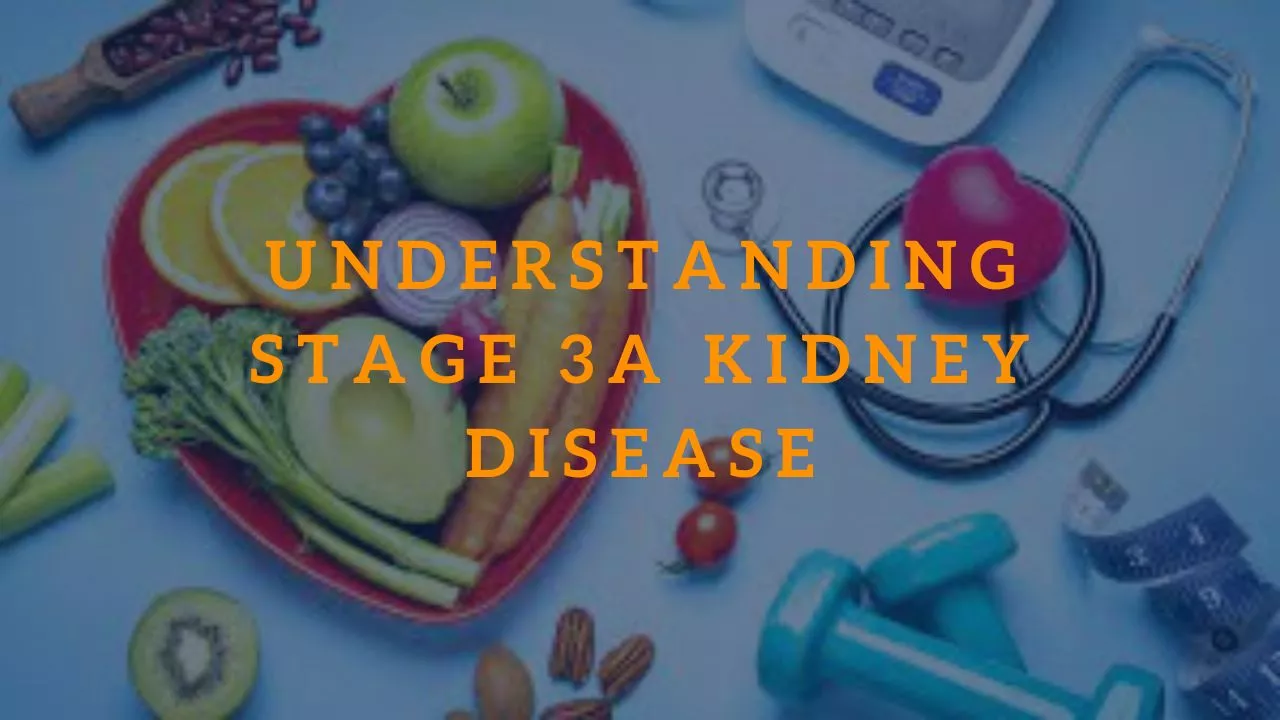Hello 1-GSM Visitors! Kidney disease is a chronic condition that affects millions of people worldwide. This condition occurs when the kidneys are unable to filter blood properly, leading to a buildup of waste products in the body. Stage 3A kidney disease is a critical stage of kidney disease, and in this article, we will discuss everything you need to know about this condition.

What is Stage 3A Kidney Disease?
Stage 3A kidney disease is a critical stage of kidney disease, where the kidney function is reduced to 45-59%. At this stage, the kidneys are still functioning, but not at their optimum level. The kidneys are responsible for filtering waste products from the blood, and when they are not functioning correctly, waste products build up in the body, leading to various complications.
Causes of Stage 3A Kidney Disease
There are several causes of stage 3A kidney disease, including diabetes, high blood pressure, glomerulonephritis, polycystic kidney disease, and other kidney diseases. Additionally, excessive use of painkillers and other medications can also lead to kidney damage, leading to stage 3A kidney disease.
Symptoms of Stage 3A Kidney Disease
Stage 3A kidney disease is often asymptomatic, which means that most people do not experience any symptoms until the disease has progressed. However, some common symptoms of stage 3A kidney disease include fatigue, swelling in the feet and ankles, changes in urine output, and difficulty sleeping.
Diagnosis of Stage 3A Kidney Disease
Stage 3A kidney disease is diagnosed through blood and urine tests that measure the kidney function. Additionally, a doctor may order imaging tests, such as an ultrasound or CT scan, to check for any abnormalities in the kidneys.
Treatment Options for Stage 3A Kidney Disease
There is no cure for stage 3A kidney disease, but there are several treatment options available to manage the symptoms and slow down the progression of the disease. Treatment options include medication to control blood pressure and blood sugar levels, dietary changes to reduce the workload on the kidneys, and in severe cases, dialysis or kidney transplant may be necessary.
Preventing Stage 3A Kidney Disease
Preventing stage 3A kidney disease involves making lifestyle changes that reduce the risk of kidney damage. These changes include maintaining a healthy weight, staying hydrated, avoiding excessive use of painkillers and other medications, and managing underlying conditions such as diabetes and high blood pressure.
Complications of Stage 3A Kidney Disease
Stage 3A kidney disease can lead to various complications, including anemia, bone problems, and an increased risk of cardiovascular disease. Additionally, as the disease progresses, the kidneys may eventually fail, leading to end-stage renal disease.
Living with Stage 3A Kidney Disease
Living with stage 3A kidney disease can be challenging, but with the right treatment and lifestyle changes, it is possible to manage the symptoms and slow down the progression of the disease. It is essential to work closely with your doctor and follow their recommended treatment plan to manage the condition effectively.
When to See a Doctor
If you are experiencing any of the symptoms of stage 3A kidney disease or have a family history of kidney disease, it is essential to see a doctor for a check-up. Early detection and treatment can help slow down the progression of the disease and prevent complications.
Conclusion
Stage 3A kidney disease is a critical stage of kidney disease that requires proper management to prevent complications and slow down the progression of the disease. If you or a loved one has been diagnosed with stage 3A kidney disease, it is essential to work closely with your doctor and follow their recommended treatment plan. With proper care and lifestyle changes, it is possible to manage the symptoms and live a healthy life with kidney disease.
See You Again at Our Other Interesting Article
